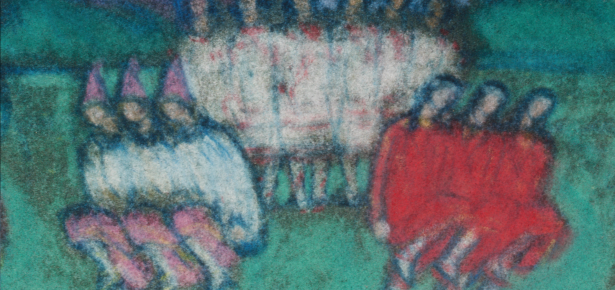
How do ideas take shape? How do concepts emerge into form? This book argues that they take shape quite literally in the human body, often appearing on stage in new styles of performance.
Performance, in other words, is not just a medium through which other arts forms such as music and literature find expression; it is an art form in its own right, making an aesthetic appeal to audiences through the kinesthetic sense of bodies moving in space and across time. It is in performance, I argue, that the process of thought itself takes shape as intuitions and insights are pressed into bodily forms that pass by way of metaphor into consciousness and language.
Although this epistemological function is likely constitutive of performance in general, and can be seen at work in a range of performances across time, it becomes especially visible in the modern era, when modernizing processes begin to transform the texture of everyday life at an unprecedented rate, necessitating new strategies for understanding and adapting to the changes in our world. When those changes multiply quickly over a relatively short period of time, modernity itself comes into view as a historical epoch marked by modernizing processes that cascade in waves of unrelenting force. In such a moment, new art works—including new styles of performance—appear, giving modernist form to the experience of change and expression to its cultural meanings.
Stretching from 1800 to the present day, Performance and Modernity: Enacting Change on the Globalizing Stage takes an expansive view of both modernity and modernism, understanding the significance of the changes associated with the historical period to have been registered first in the unexpected—often experimental—forms of expression associated with the artistic movement. Drawing its case studies primarily from the global North and West, the book extends its reach into the global South and East, recognizing that styles of performance are as multiple and uneven as the global experiences of modernization that find expression in them. Each chapter sets two or more performances in relation to each other, taking a comparative approach to note differences that manifest under the pressures of the same modernizing impulse, even as homogenizing forces bring them into alignment to constitute them as a collective “style.”
In new styles of performance, I argue, we can see how the economic, industrial, political, social, and psychological changes that marked the modern period were often registered first in bodily metaphors that took shape on stage. With examples from acting, dance, music, pageantry, avant-garde provocations, film, and digital media, Performance and Modernity finds fresh evidence for how modernity has been understood and lived, both by performers, who, in modelling new habits, gave emerging experiences an epistemological shape, and by their audiences, who, in borrowing the strategies they enacted, learned to adapt to a modernizing world.
After all, if the period of modernity is marked by an accelerated rate of change that radically alters the experience of everyday life, then what better way to understand it than through a processual art form that likewise unfolds as movement in time?
Latest Comments
Have your say!